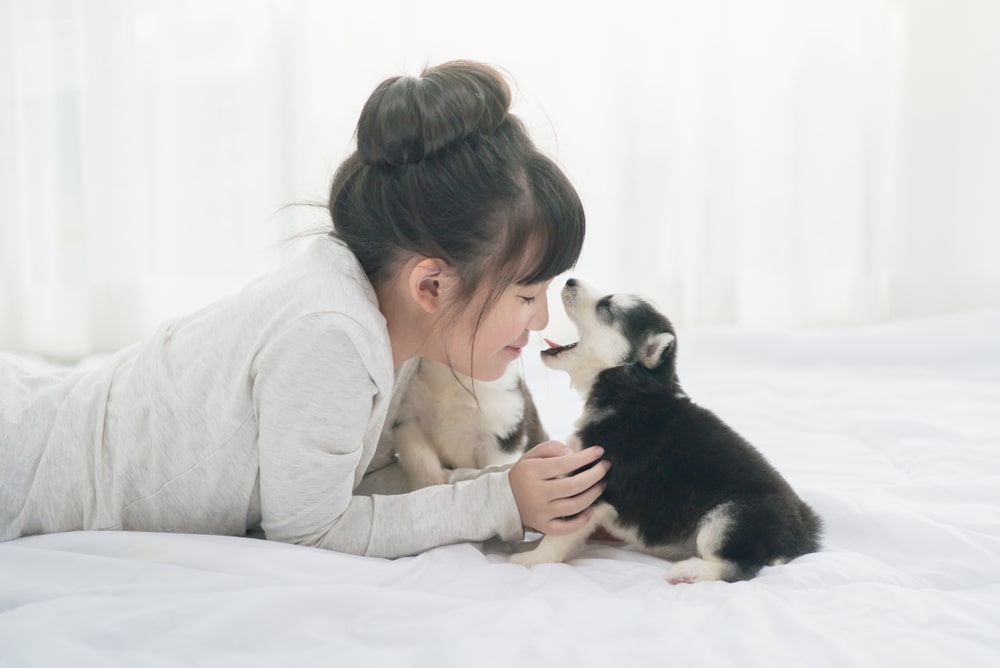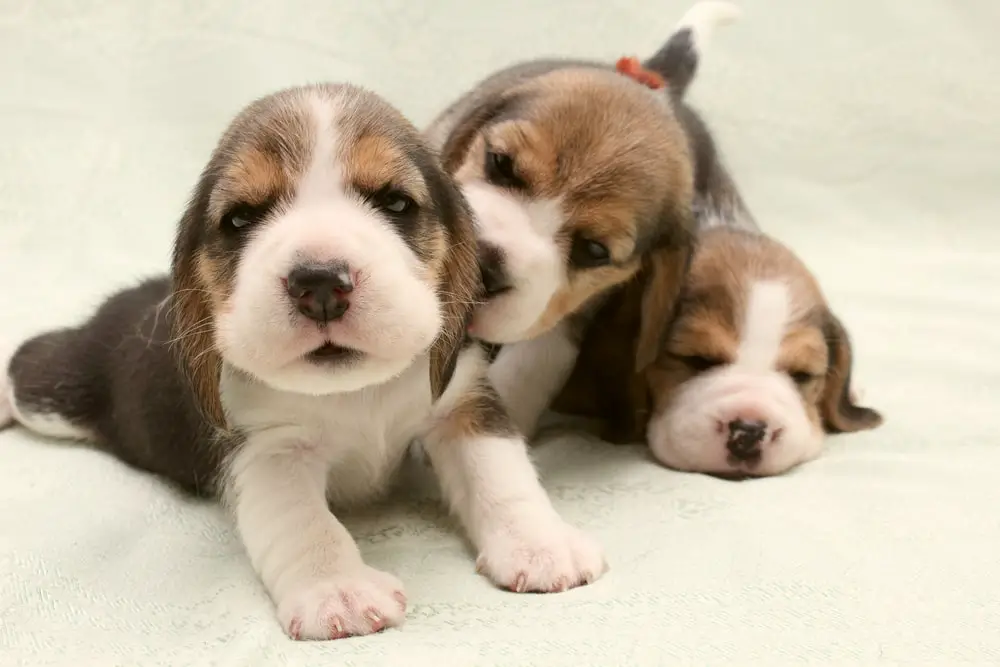Dogs are loyal and very attached to their owners. Especially with puppies, you need to pay more attention and monitor their manifestations. Many people wonder why puppy breath smells like coffee. Much of the cause of a puppy’s breath odor is the formation of teeth, enzyme glands, and the smell of mother’s milk inside the puppy’s mouth.
Smelly puppy breath is a normal phenomenon, fishy, foul, metallic, or coffee-like. As for the smell of coffee, many people find this to be a rather pleasant smell compared to other odors on a puppy’s breath; many describe it as quite sweet.
A puppy’s breath smells like coffee because the taste of the mother’s milk remains in the puppy’s mouth after feeding. Their mother’s milk is sweet and has a faint scent on the puppy’s breath. The puppy’s teeth have not yet come in and have not chewed on other foods, so the puppy’s mouth does not form plaque that causes unpleasant odors. Therefore, the puppy’s breath has a pleasant light scent for the first time. However, when the puppies are grown and eat foods other than mother’s milk, plaque will form in the mouth, leading to a more pungent odor, overpowering the original aroma of coffee.

The smell of coffee on a puppy’s breath is addictive for dog lovers. But if your puppy has an unusual fishy odor on his breath, you should take him to the vet for prompt treatment.
Is It Normal For My Puppies Breath To Smell?
A puppy’s lousy breath is entirely normal.
A puppy’s breath will smell between birth and four months of age. This odor is often described as pleasant, mildly aromatic, and has a faint coffee-like smell, utterly different from the foul, fishy odor found on adult dog breath.

This is an entirely natural phenomenon. The smell in the mouth will partly show the health status of the puppy and help us know the food they eat. The smell of coffee on the puppy’s breath indicates that the puppy’s health is in good shape. This smell is because the smell of breast milk combines with enzymes inside the puppy’s mouth.
Many people think that this infers breast milk has the smell of coffee, which is entirely wrong. Breast milk does not smell like fresh coffee. However, when giving breast milk to babies, there are natural bacteria in the puppy’s mouth; they proceed to eat the amino acids in the milk left in the mouth, creating this pleasant and gentle scent.
In addition, the smell of coffee in the breath of puppies can also be due to the process of teeth formation and teething, leading to a mild odor. Certain types of bacteria in a puppy’s mouth produce a sweet smell.
But you need to know that the puppy’s diet will determine the smell of their breath. If your puppy is eating poorly, it will likely cause his breath to smell.
What Does Teething Puppy Breath Smell Like?
Puppies’ breath can have a variety of odors, depending on the puppy’s health and diet. Studies have compiled a list of familiar smells in puppies and the reasons for these odors. You can compare the following aromas with your baby’s breath.
– Smells like poop
This is a reasonably familiar smell but rarely comes from a puppy’s mouth. Most of this foul smell is because the puppy, after pooping, has touched the feces on the ground, which leads to the feces sticking to the person causing the smell. This is the standard behavior of puppies.
However, if this smell appears in the puppy’s mouth, you should contact your veterinarian because your puppy’s health is in trouble.
– Smells like a skunk
This smell is familiar in puppies around eight weeks of age. You do not need to worry because then it will disappear on its own after the 8-week mark. Some digestive enzymes cause the skunk smell in puppies, and when they develop into digestive fibers, the smell will disappear.
– Fishy and metallic smell
A fishy or metallic smell can result from teething in puppies, and this smell comes from their gums due to slight bleeding. The time the puppy emits this smell is short and will be over quickly; you don’t need to worry.
In addition, with a fishy smell, the cause may also be because the glands near the anus of the puppy have a fishy smell.
– The smell of coffee
Many people like the smell of coffee on a puppy’s breath. It comes from breast milk and beneficial bacteria on the puppy’s tongue, forming a reaction that smells like coffee. It’s pretty sweet and pleasant.
Why Does My 8 Week Old Puppy Have Bad Breath?
Puppies under 12 weeks of age will have a rather pleasant smell. However, if your puppy’s breath smells bad, there are problems with the puppy’s health or parts of the body.

There are six reasons your 8-week-old puppy may have bad breath:
– Teethe
This is a common cause of a puppy’s bad breath or smell. As the puppy reaches the weaning stage, teething, the breath will smell more.
– Damage to the teeth
Puppies like to chew anything they want, so it is straightforward to injure areas in the mouth that lead to inflammation. These wounds cause a foul odor in the puppy’s oral cavity.
– Puppy food
Puppies often eat indiscriminately and eat things with a bad smell; this smell will stay in the mouth and make the puppy have bad breath.
– Digestive problems
Puppies’ digestive system is still in love, leading to stomach-related diseases or digestive difficulties when encountering strange foods. When you have digestive problems, the smell will go from the digestive tract to the mouth, making you mistake it for the smell of puppy breath.
However, if your puppy’s breath has a persistent and persistent odor, you should take your puppy to the vet for a prompt examination and diagnosis.
As such, puppy breathing that smells like coffee is a very normal phenomenon, and many people love this scent of puppies. However, if your puppy has bad breath and is uncomfortable for a long time, you should find out the cause or bring him to the clinic to detect the disease as soon as possible.
